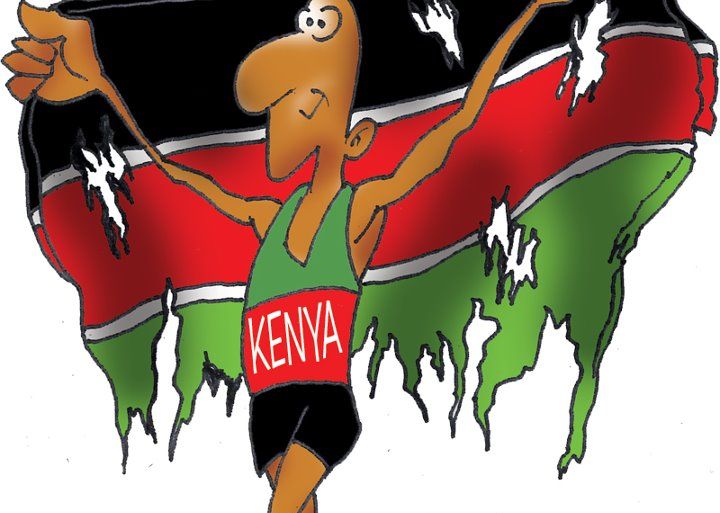Rooting for Kenya and Ferrari: frustrating, but worth it
Both have a habit of letting supporters down. But as Kenya tries to move beyond its latest election, there is hope.

As Kenya was counting votes over the weekend after its presidential election, seven-time Formula One champion Lewis Hamilton came visiting for a holiday. I love watching F1. However, unlike many Kenyans, my favourite team is not Hamilton’s Mercedes but rather Scuderia Ferrari (or the Scuds, as I like to call them).
I must admit that rooting for a team that, unlike Hamilton, has not won anything since 2008, has taken its toll. Every season, it is the same pattern of starting off with great hope and confidence before the sinking “oh-no-not-again” feeling of despair kicks in as the season proceeds and the team almost invariably implodes. Year after year, we the fans are left to lick our wounds and then start all over again.
Keep reading
list of 4 itemsCroatians vote in election pitting the PM against the country’s president
Solomon Islanders vote in election that could shape ties with China
Analysis: Ruling party errors give Turkey’s opposition hope for future
Rooting for Kenya is a similarly frustrating pursuit. It is a country that, like the Scuds, has so much potential but seems intent on self-sabotage at every turn. Take the presidential election. On Monday, the Independent Electoral and Boundaries Commission (IEBC), the body managing the vote, announced Deputy President William Ruto as the winner of the election, narrowly ahead of perennial presidential aspirant Raila Odinga. However, with many commissioners of the IEBC refusing to certify the results, the declaration of Ruto as president-elect came amid an atmosphere of tension and elicited some protests in the capital’s deserted streets. Odinga’s Azimio la Umoja coalition will likely go to court to challenge the outcome.
This election had started out with such promise. From the unprecedented transparency shown by the IEBC to the independent tallies run by local and international media, this was looking like Kenya’s coming-of-age vote, one that would represent another leap along the path to finally putting to bed the horrors of elections past. But as the election unfolded, the confidence turned to a sense of unease: oh no, not again! The media counts vanished from TV screens, and, in a throwback to previous elections, all attention was fixed on the official count proceeding at a glacial pace at election headquarters at the Bomas of Kenya in Nairobi, where politicians were in their element, fomenting chaos and disorder.
Kenyans have always been wary of elections. They bring with them fears of existential political trouble, which multiply exponentially as vote counts drag on. People stock up on essentials such as food, schools and businesses close, and people begin to migrate to areas where they feel safer among their kith and kin. In fact, since its independence in 1963, the country has never been able to sustain a gross domestic product (GDP) growth of 5 percent or more for a period of five years – the time interval in between elections.
Presidential elections, since the return of multiparty politics in 1992, have been the primary focus of much of this anxiety. The reasons for that are not difficult to fathom. The presidency continues to be seen as the ultimate prize in elections. Further, the elections for the office have historically either been stolen outright or been riddled with huge irregularities and have more often than not been accompanied by a generous helping of violence. Add to that the historical amnesia that much of the country suffers from, which means problems are allowed to fester for years as a parasitic elite engorges itself on the public’s resources, and you have a highly combustible mix of ambition, malfeasance and grievance.
Still, much progress has been achieved in ameliorating some of the problems that have led to trouble. Two important ones have been the slow devolution of political power and risk across the system rather than concentrating it in the presidency; and the emergence of an independent and assertive judiciary as a credible arbiter of electoral disputes. The historic annulment of the 2017 election by the Supreme Court stands out as an example.
This election had many positives, including the increased number of women getting elected and the unprecedented avalanche of concessions by losing candidates in lower races even before official results were released. It also initially looked like moving the needle on eliminating electoral malfeasance. Many were rooting for the IEBC to achieve what the judiciary had five years earlier. But with claims of rigging once again resurfacing and transparency in question, things are not looking so promising. That familiar sinking feeling is creeping in again. Once again, the air is thick with appeals for peace.
But I am not ready to give up on Kenya just yet. If, despite all these problems, the IEBC is shown to have delivered a credible election and the media serve as a credible check on official narratives, the country could still emerge with a stronger set of institutions, better placed to face the future.
Now, if only I could say the same about the Scuds.
The views expressed in this article are the author’s own and do not necessarily reflect Al Jazeera’s editorial stance.
